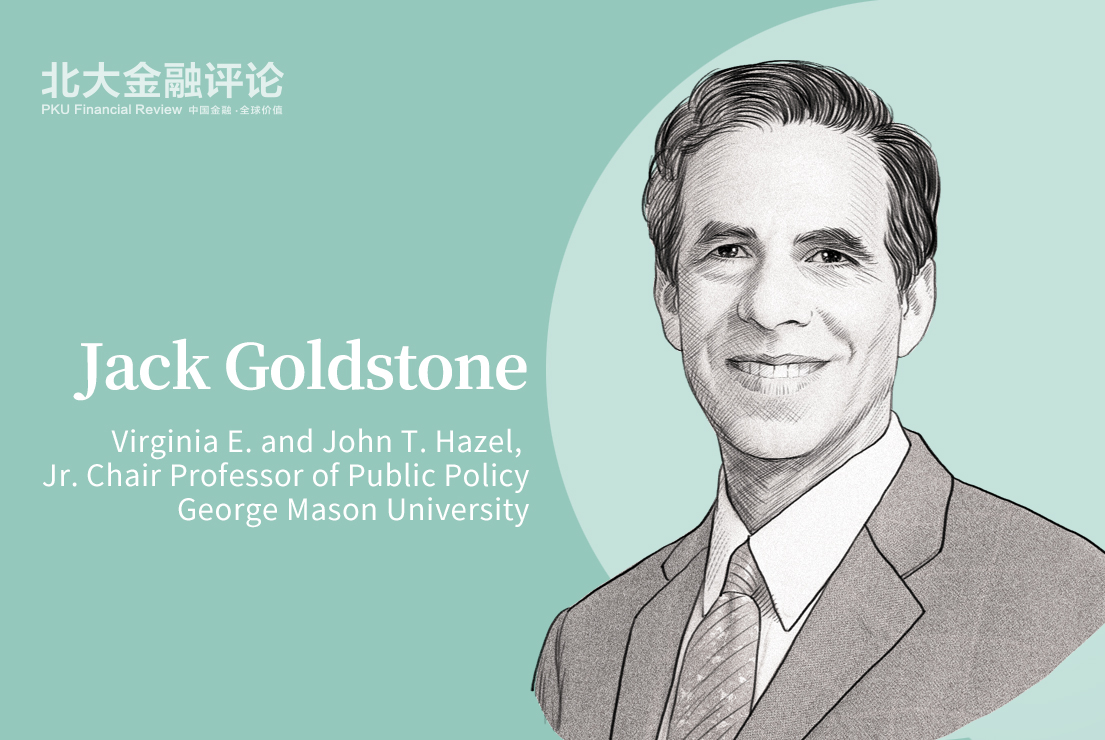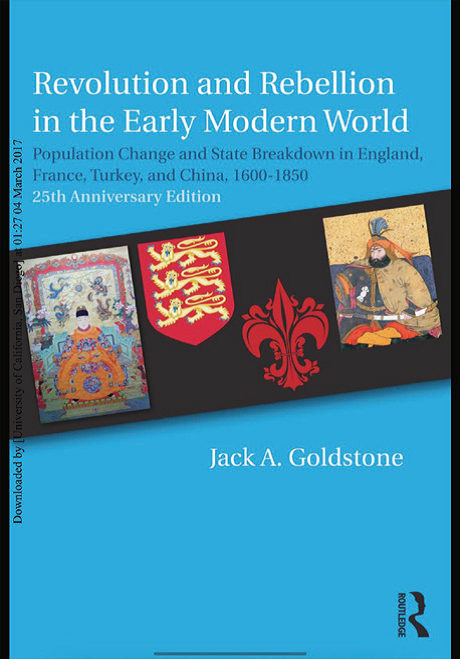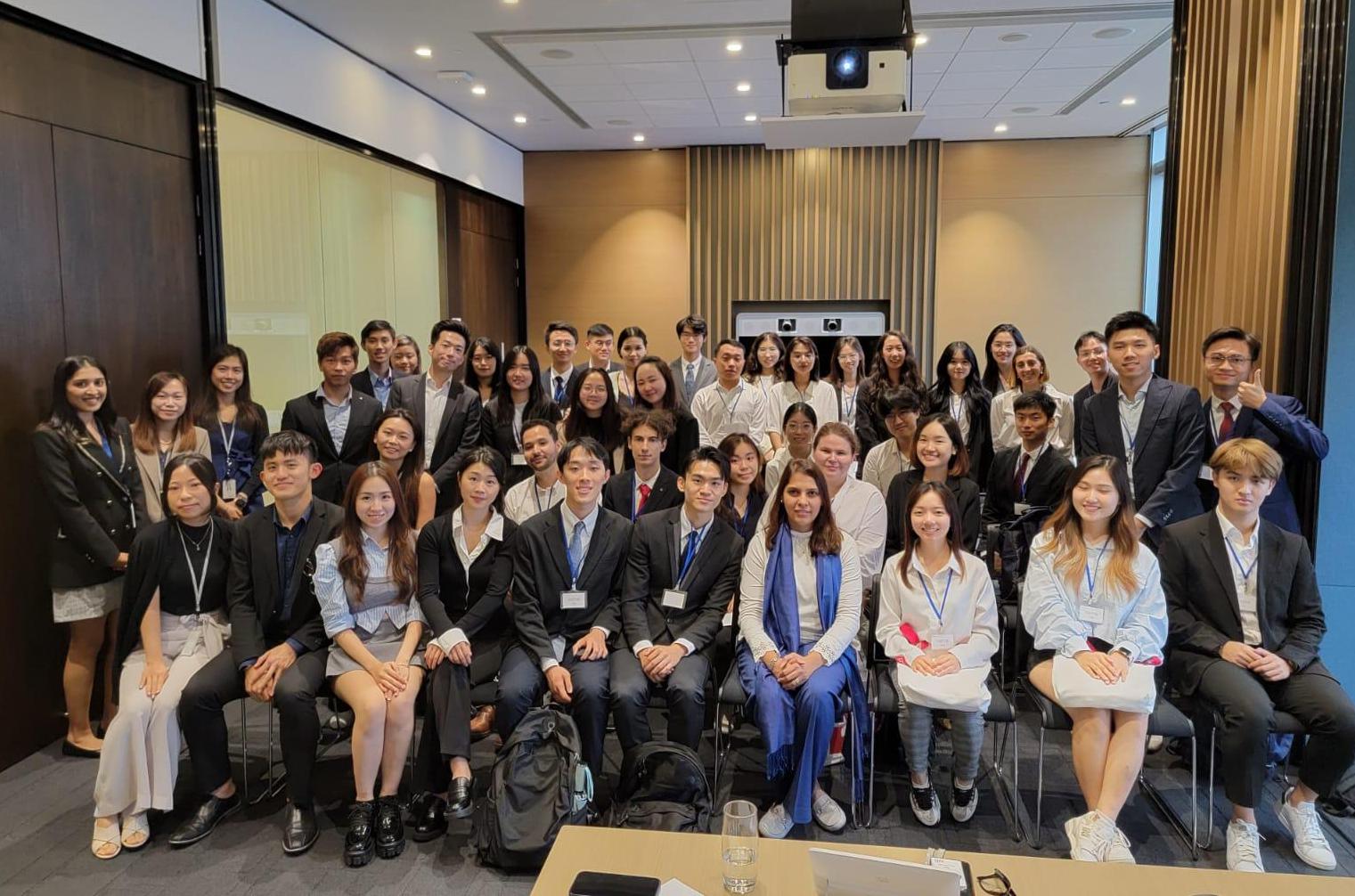The Virginia E. and John T. Hazel, Jr. Chair Professor of Public Policy at George Mason University, Jack Goldstone is a sociologist, political scientist, and historian, specializing in studies of social movements, revolutions, political demography, and the "Rise of the West" in world history. In the interview with
PKU Financial Review, Jack Goldstone concerns more about "elite overproduction" rather than population aging.
 PKU Financial Review: You are the theoretical founder of structural-demographic theory (SDT). SDT combines population growth with urbanization, youth bulge, elite plunder, and serious social inequality, thus proposing a new mechanism of "political instability". China is in a period of rapid aging and is "taming" those monopolistic technology giants. In your opinion, can China find a strategy from SDT to prevent future political instability?
Jack Goldstone:
PKU Financial Review: You are the theoretical founder of structural-demographic theory (SDT). SDT combines population growth with urbanization, youth bulge, elite plunder, and serious social inequality, thus proposing a new mechanism of "political instability". China is in a period of rapid aging and is "taming" those monopolistic technology giants. In your opinion, can China find a strategy from SDT to prevent future political instability?
Jack Goldstone: The SDT suggests that China can keep political instability away by continuing inclusive economic growth, limiting elite corruption and factionalism, and reducing inequality. I do NOT see any risk of violent political instability in China.
The SDT suggests that the country is demographically past the stage at which violent political movements are likely to spread. I should note that the SDT
does argue that countries with a high median age, like China, are likely to have populations that value personal autonomy and the accountability of their government, and thus seek to adopt constitutional, democratic institutions.
PKU Financial Review: Your research has been focused on the impact of population change on the global economy. Currently, the median age of India is 28 years old, China is around 38 years old, and Japan is over 48 years old. From the perspective of Structural-demographic theory, how do you view the development trends of major global economies in the future? Is the younger the population, the better its development?
Jack Goldstone: I think it's not that simple. India, China and Japan are in different places on their population trajectory, but all of these countries are moving in the same direction. That is all of them have far fewer children than they did a few decades ago. And so they are all in the process of what we called population aging. That is in the next decades they will have more people who are elderly, and fewer young people. Now when you say the younger the population the better, that's certainly not always true. Younger is better only if the young people are well-educated, or trained to be productive, and if there are jobs for them. If you have a large number of young people who are poorly educated as India has, that's not always helpful. Japan has too few young people for rapid growth. That’s true. But Japan's young people have been well-educated and productive for many decades, so even though the economy is stuck at slow growth, it remains stable at a fairly high level.
Now when you ask about the future, what's going to happen in these countries going forward? All of them because they are aging are likely to see slower economic growth, and then an eventual decline in their total output when the working age population starts to fall, especially when it starts to fall rapidly. Now that has not happened yet in any of these countries. Even in Japan although it's getting older, the very large numbers that were born in the 1960s are only just starting to retire now, so Japan is going to start seeing a major decline in the workforce very soon. China will see a slow decline in the workforce that will get faster within a couple of decades, and India will have a workforce that is growing slowly not as well-educated, but still growing for about 20 years, although its economy will remain much smaller than China. I think for at least for a 20-year period. So all of these countries are slightly in different phases, but they're working on the same kind of trajectory. So India will grow more than China or Japan in percentage terms, but will probably remain a smaller economy because it's not going to grow that fast given that its population is already starting to age.
PKU Financial Review: Starting from 2020, the United States will be in a "turbulent period" due to "elite overproduction", which is many elites spend a lot of money and time obtaining high-level diplomas, but they do not receive corresponding benefits. Do you agree with this viewpoint?
Jack Goldstone: It is not just that there is competition among educated elites for jobs – that is true in China as well! Rather, it is that elite overproduction has been followed by a period of extreme political polarization, in which the elites leading rival parties (the Democrats and Republicans) are seeking to exclude the other from political power and make policy without any input or compromises from the other party. This leads to turbulence because government decision-making becomes difficult – for example, the two parties are failing to agree on how to raise the borrowing limit for the US government, which could damage the US’s fiscal strength—and because any decisions that are made by one party, such as recent decisions on when abortion is permitted, or which health expenses should be paid by the government, are immediately contested and then reversed if the other party gains power.
So government functioning is hindered and government policies are unstable. At the same time, the factional conflict leads elites to try to whip up popular emotions and anger over actions by the other party; this increases the risk of violent actions by popular groups. For most of its history, the United States has relied on its Constitutional institutions to defuse conflicts and encourage cooperation and compromise among different political viewpoints. Today however, as in the Civil War era, political elites are so often opposed to cooperation, and are encouraging such anger at their opponents, that they appear willing to tear down those institutions in order for their party to gain or keep power.
PKU Financial Review: Regarding “elite overproduction”, What do you think is the most feasible solution to this problem?
Jack Goldstone: I don't think that there's a good solution today. The problem is not only that American voters are very polarized, but they're also just about evenly divided between conservatives and non-conservatives. That means elections tend to be very close, and elites think they can win by getting more people on their side to go out and vote. So they don't try win voters from the other side right now. They’re just trying to get their side more excited and that means fanning conflict rather than trying to find solutions that are compromises. Now you see this for example with Republican candidates who are challenging Donald Trump. Ron DeSantis the governor of the state of Florida is trying to challenge Donald Trump for leadership of the Republican Party. But he's doing so by trying to be more conservative than Donald Trump. He says I'm going to be tougher on abortion than Donald Trump. I'm going to prevent abortion at an earlier period. He says I'm going to be even tougher on immigrants than Donald Trump. I'm going to be more of everything. That kind of appeal to the extremes leads the elites to view each other as enemies. Because you have people with extreme positions fighting with each other. Now that may improve as the population gets older, a lot of support for the extreme conservative position is generational. The people over age 50 tend to be much more conservative than the average, while younger people under 30 are much less conservative on average. But in the next 10 years we have a lot of older people who will start to pass away or withdraw from voting. And I think that means the advantage of appealing only to the extremes will also fade away. I don't know how fast that will be. It may take 5 years it may take 10 years. But at this moment, we see politicians getting involved in some very strange fights like this week. You probably heard about this. The political parties in America are fighting over what conditions will they accept to raise the debt limit for the American government to borrow money to pay its bills. Now everybody agrees having a fight over paying our bills doesn't make any sense. It doesn't make sense for America. It only makes sense as the product of anger between different political leaders who are trying to score a victory over their opponents. And right now their desire to score victory is so strong that they're willing to take risks with the main institutions and credit of the country, and that is bad for America. And I hope it won't last. But it looks like it will last at least through the next couple of years and through the next election.
PKU Financial Review: Saudi Arabia and Iran have begun to reconcile under the mediation of China, how will this affect the United States and its Western allies?
Jack Goldstone: I believe many Muslim countries are finding it useful to improve their relations with China. In the cases of Iran and Saudi Arabia, both countries are seeking to resist pressures from their own people to move closer to Western ideals of constitutional democracy and personal freedom.
Other countries with large Muslim populations in Asia and Africa will find it useful to benefit from Chinese investment and economic assistance. But that does NOT mean the entire Muslim world is becoming closer to China. Indonesia and Malaysia, for example, are keen to guard their autonomy and will seek to keep balanced relationships between the US and China. Many African countries will act in that way too. I think the way to see these relationships is to acknowledge that countries around the world, including Muslim countries, will seek to benefit from relations with leading economic and military powers according to what they see as best serving their own interests.
That means the United States will have to compete with its Western allies for influence around the world, much as the United States and the Soviet Union competed for influence during the Cold War. But this does not mean any one power will dominate.
You may recall that Egypt at one point in the 1950s and 1960s was considered Soviet-dominated, while Iran was a major US ally. Thirty years later, Egypt was a staunch US ally and Iran was an avowed enemy of the US. Unless some technological breakthrough makes one country dominant in the world economy – which is simply not the case today and seems unlikely in the near future – no country should expect to have other countries move closer to it.
Countries will obtain whatever they think they find valuable or useful from all other countries. What we have to hope for is that this can be done peacefully, cooperatively, and harmoniously, through agreements that keep competition fair and peaceful, and allow all countries to advance the health and prosperity of their people without fear or coercion.
PKU Financial Review: What do you think of Generative Pre-trained Transformer like ChatGPT? It seems that it can replace a lot of human work. Does it lead to less work and more leisure and comfort for humans, such as working 4 days a week, or causing unemployment in many industries, and eventually trigger a political crisis?
Jack Goldstone: Every technological advance of the machine age, from factories to spin cotton to personal computers, was criticized for potentially putting people out of work. Yet this never happened; instead technologies made humans MORE productive, and so higher paid, and increased the value of work that could not be done by machines.
Despite all the technological advances of recent decades, the US has record-low unemployment today. ChatGPT will enhance the productivity of workers who create writing, music, and computer code. It will provide first drafts, basic translations, and new melodies, that skilled human workers can then build on and revise to produce superior outputs. It will also enhance the productivity of scientists trying to solve complex problems that require creating algorithms relying on enormous amounts of data, as with developing a program to predict the 3-dimensional structure of proteins. ChatGPT may help develop cancer vaccines, or much more efficient motors. (It may also make sports bettors more effective.)
But I do not believe it will cause mass unemployment. The bigger danger is that ChatGPT will be given too much authority or power over certain work or government activities, which could be dangerous, just as if any other technology was used inappropriately.
















